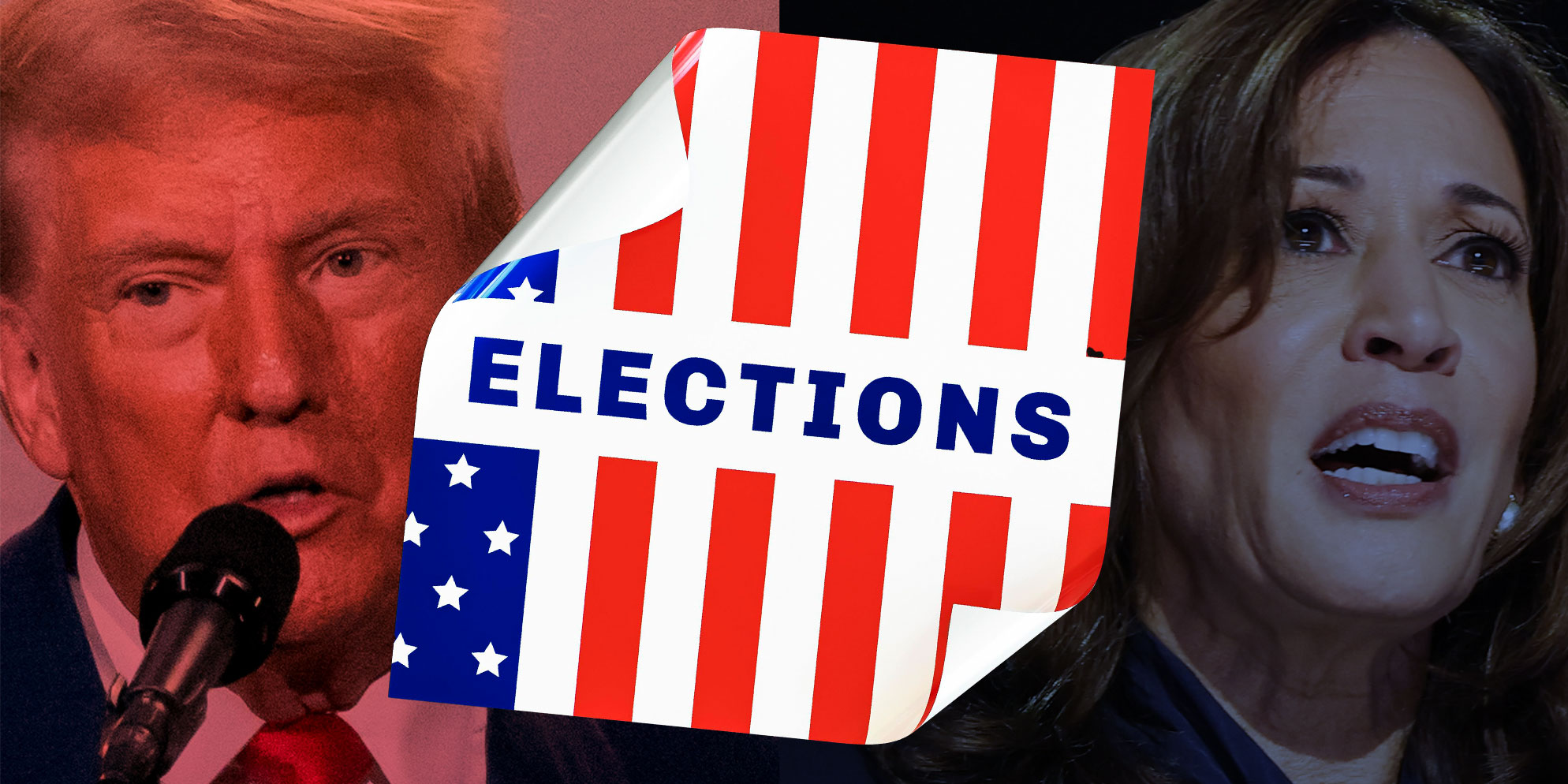No US election in modern times has roused this much dread. Granted, 1860 was worse. Tensions over slavery and states’ rights were soaring. After staunch unionist Abraham Lincoln won the presidency, civil war became all but inevitable.
But since then?
The contest between former president Donald Trump and Vice-President Kamala Harris has pitted the US against itself. Democrats and Republicans speak of impending disaster if their candidate doesn’t win. No one takes election integrity for granted.
This is not the usual partisan doom-mongering. Two-thirds of US adults fret about extremism and political violence, according to a recent Ipsos/Reuters poll. US allies are worried, too.
Its enemies are licking their lips.
“In the dark times, will there also be singing?” asked the German playwright and anti-Nazi activist Bertolt Brecht, in his Svendborg Poems, written in exile in the Danish countryside during the late 1930s. “Yes, there will also be singing.”
Popularised on social media as a motto for hope, Brecht’s words speak more directly to the role of art in reviving a complacent humanity. It’s in the dark times that we reach for a song, a poem, a painting — to remind us of who we are and what’s at stake.
One of my colleagues faithfully rewatches Ken Robinson’s fabled 2006 Ted Talk on children’s education — as close to art as lectures ever get — every six months. He says that Robinson’s talk keeps his brittle spirit intact, as an ailed body might require chronic medication. I’m sure he’s not alone.
When my faith in democracy and its institutions droops, I sometimes replay cinema’s greatest courtroom speech.
Based on the novel by Barry Reed and directed by Sydney Lumet, the 1982 film The Verdict is the story of a middle-aged alcoholic lawyer in Boston, reduced to scrounging for clients at funerals. He redeems his life and career by successfully taking on the city’s corrupt “establishment” — legal, medical and religious — on behalf of a working-class family in a medical malpractice suit. The Verdict climaxes in a three-minute-long summation by Frank Galvin, the lawyer.
https://www.youtube.com/watch?v=qjYP7J3oP9Q
The scene should give pause to US voters on 5 November.
It begins with Galvin, played by Paul Newman in a performance that inexplicably failed to earn him an Oscar, slumped in his courtroom seat, unresponsive as the judge pleads for him to begin his closing remarks. Depleted by his rich opponent’s constant ploys, Galvin grudgingly rises, crumpling his prepared notes in silence. He stares downwards.
“So much of the time, we’re just lost,” he sighs, seemingly to himself. “We say, please God, tell us what is right, tell us what is true.”
He projects his despair about the erosion of truth on to everyone gathered in the courtroom, a simulacrum of US society. Now he speaks to them, or maybe for them, his eyes still fixed downwards:
“When there is no justice, the rich win, the poor are powerless. We become tired of hearing people lie. And after a time, we become dead. We think of ourselves as victims — and we become victims… We doubt ourselves, we doubt our beliefs, we doubt our institutions. And we doubt the law.”
The powerful try to deceive and coerce us, smash our spirit, sow fear. Yet nothing transcends our freedom to choose what we believe is right. Galvin then turns to the jury for the first time, finding his voice.
“But today, you are the law. You. Are. The law. Not some book, not the lawyers, not the marble statues … or the trappings of the court. Those are just symbols … of our desire to be just. They are, in fact, a prayer. A fervent and frightened prayer.”
If we stop pursuing truth and fairness, our democracy will fall. Galvin is now face-to-face with the jurors. His peroration is hauntingly spare.
“In my religion, they say: ‘Act as if ye had faith, and faith will be given to you.’ If we are to have faith in justice, we need only to believe in ourselves. And act with justice. And I believe there is justice in our hearts.”
The jury finds for Galvin’s client.
If the climatic moments of The Verdict were understood as an allegory for American voters in the upcoming election, their choice appears obvious.
Though not, perhaps, to David Mamet, the Pulitzer Prize-winner who adapted Reed’s book for the screen. Mamet was just 34 when he penned Galvin’s famous monologue. He was, then, hailed as a liberal wunderkind of the film and theatre worlds. Today, Mamet is an avowed Trumper.
Heaven knows what he would think of this riff on one of his masterpieces.
But as a microcosm for a divided and confused nation, Mamet’s conversion could hardly be more apt. DM
Dr Terence McNamee is a writer and consultant, and a non-resident Global Fellow of the Wilson Center in Washington, DC.
Op-eds
What a cinematic masterpiece tells us about the upcoming US election
When my faith in democracy and its institutions droops, I sometimes replay cinema’s greatest courtroom speech.




